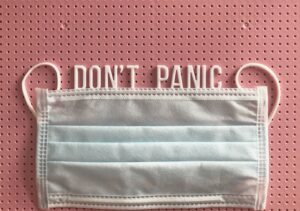
In Montana, almost everyone who wants to keep their car after filing for Chapter 7 bankruptcy can do so. However, whether you keep it or not depends on the actions of three players: you, the bankruptcy trustee, and the lender.
First, you need to decide whether you want to keep the car. If you owe far more on it than it’s worth, your interest rates are too high, or if it’s a lemon, you might be better off letting it go in bankruptcy and replacing it.
Second, the bankruptcy trustee will be interested in whether you have any equity in the car. That is, is the car worth more than you owe on it? If so, do you have more equity than is protected under Montana’s exemption statute (the law that determines what you get to keep in a bankruptcy)? Currently, Montana law allows you to protect up to $4,000.00 of the equity in a motor vehicle if your name is on the title. If you don’t have any non-exempt equity, the trustee will not be interested in your car. If you have non-exempt equity, most trustees will allow you to “buy it back” from the bankruptcy estate. Again, this is a matter of discretion and local practice, so you should consult a knowledgeable bankruptcy attorney in Missoula to discuss the issue.
Finally, do you still owe money for the car? If so, the lender can influence whether or not you decide to keep the car. When you file for chapter 7 bankruptcy in Montana, all of your dischargeable debts will be wiped out, including not just credit card and medical bills but also the debt you owe on your car and your home. However, even though you will no longer owe any money on your car, whether you keep your car after filing bankruptcy is mainly up to you. After bankruptcy, the three most common options for your car are to reaffirm, “ride through,” or surrender, and which one you choose depends on the lender’s disposition.
Reaffirmation – Reaffirmation is a process in which someone who has filed bankruptcy asks the judge to waive the discharge of a particular debt. With a car loan, you agree that you will continue to make your payments on the car and continue to owe the debt. As long as you continue to make payments, the vehicle can’t be repossessed. However, if you become unable to pay, not only can the lender repossess the car, but they can also sue you for the deficiency (the amount you owe on the car and repossession costs, and what they sell it for after repossession). One advantage to signing a reaffirmation agreement is that your continued payments will help you rebuild your credit score more quickly.
Ride Through –To “ride through” means to continue paying on the debt without reaffirming. Essentially, you are making payments on a debt that you no longer owe. While this option was technically eliminated when the Bankruptcy Code was rewritten in 2005, it is still the most common. Most lenders will not enforce their right to make you choose between signing a reaffirmation agreement and surrendering the car because they’re pleased as long as you continue to pay them. They will continue to keep track of what you pay, and when you have paid the total amount owed before bankruptcy, they will sign the title over to you. The primary advantage of not signing a reaffirmation agreement is that if you can no longer pay, the lender can repossess the car but cannot sue you for the deficiency.
Surrender – If you don’t want to keep the car, or if the lender is demanding that you sign a reaffirmation. Still, you don’t think it’s in your best interest (for example, because you owe far more than it’s worth, or the interest rate is too high), you may simply turn the car over to the lender and be done with it. The chapter 7 bankruptcy frees you from the debt associated with the car, and you’re free to go out and find something new.
How assets are treated in bankruptcy can be a complex issue, so it is always best to contact an experienced bankruptcy lawyer in Missoula, Kalispell, Butte, Bozeman, Helena, or Hamilton for an analysis of your case. Geranios Law represents clients in each of those cities and surrounding areas. Call 406-541-3565 today.




